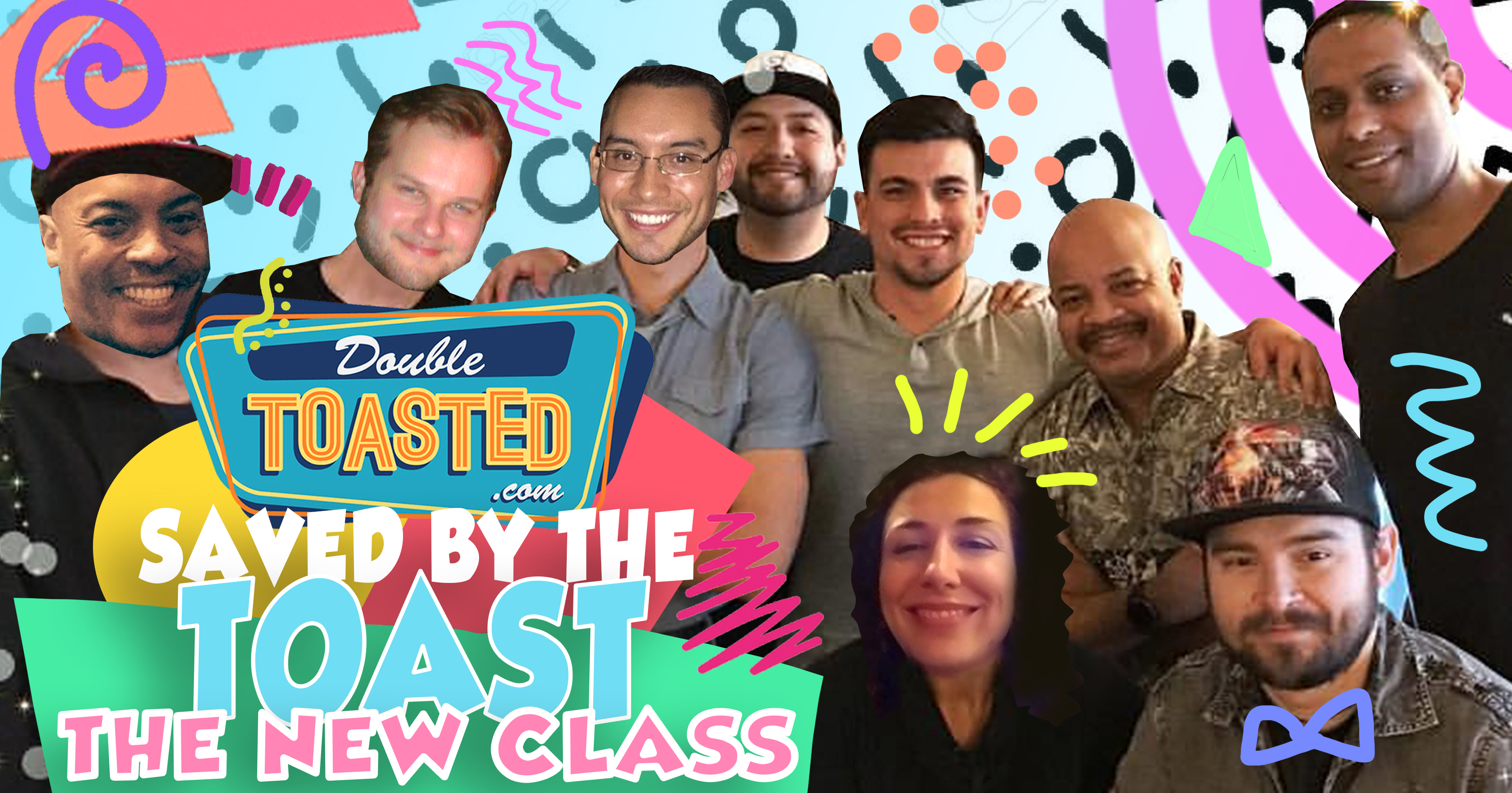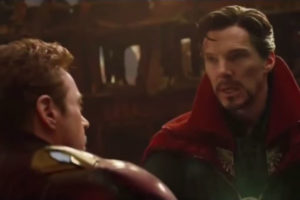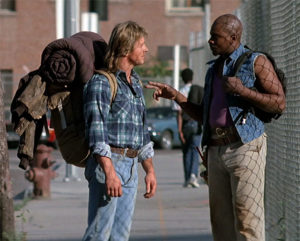Will’s Honest Opinion – Stimulated Reality – 7-14-18

“A black guy, a blonde guy, a brunette, and a dude with glasses, walks into a recording studio… Stop me if you heard this one…”
I’ve noticed lately a common, (or uncommon) theme in entertainment lately. It’s something I’ve addressed briefly before, but the concept of a simulated reality is slowly making it’s way into the public consciousness, and with that, the world as we know it slowly seems to be shaping and forming into something that is borderline obvious and transparent.
For those of you who may be unfamiliar with the hypothesis, it has been suggested that the world we live in is a holographic 3D projection. It’s an interface that we can all interact with and within. Imagine it as a giant gaming lobby where everyone is present and can speak, trade, and set course from. There are many MANY reasons why prominent theoretical physicists and cosmologists like Laurence Krauss, or Michio Kaku, believe that world around us is not all it seems to be; more than I could get to in this piece. However, the general consensus seems to be making the rounds in intellectual circles, and is now slowly seeping into the realm of entertainment. More so than solely being encompassed by a trilogy of surfer starring, bullet-time action flicks.
Isn’t it odd that the older you get, the more you say: “I’ve seen this before?” When you think about it, for the most part, many games are the same with altering skins. Many shows and movies tell the same story with different casts and settings, but the message is always exactly the same as before. Maybe there’s a reason the universe tends to repeat itself with limited variations of alternating versions of itself. Is death a reset button to those who have reached the end of it’s offerings? How many video games continue to tell a story once you’ve beaten it? Maybe the simulation has become too small for it’s inhabitants to not take notice of.
The first contemporary example I’d like to reference would be that of the newly exhibited, “Battle Royale” games. A somewhat basic set-up and gameplay type that pits online players against each other, may come off as self evident or unmissable, but the concept is strikingly similar to life. In fact the introduction of such a widespread phenomenon may be an inevitable proof and result of an omni-consciousness gearing up to usher humanity into the next phase of philosophical enlightenment. (Trippy…)
“The whole deal is like some kind of crazy game. They put you at the starting line. And the name of the game is make it through life. Only, everyone’s out for themselves and looking to do you in at the same time. OK, man here we are. You do what you can, but remember, I’m going to do my best to blow your ass away. So how are you going to make it?” -Frank, ‘They Live’ 1988
Sound familiar? That film came out 30 years ago, and is still relevant to this day. Although that movie seems to presume we’re all being herded around like cattle by skeletal space overlords, the message and the theme are constant. And that theme is that it’s a huge game. You might want to ask yourself why it’s a game, and if we’re the players or the played, who stands to benefit? Is it a challenge? Is this a massive existential test that determines how the human psyche works, or why it makes the choices it does? It may appear so.
The next example that submits to these guidelines or premises, is, ‘The Purge’ film series. Say what you will about the execution of the films, (all four ranging from 30%-50% on Rotten Tomatoes); the series demonstrates the ethos of the human condition. Sometimes heavy handed, each entry wears it’s message on it’s sleeve, and acts like an over-the-top ethics episode of ‘Sesame Street’ for ages 25 and up. The undertones of race, bigotry, and tolerance come off with the finesse of a poorly tuned piano trying to play ‘Chopsticks’. Like: “yes, we get it; you don’t need to try so hard. It’s not that hard a tune.” However, the ideologies and basic rule set explored are no different than that of any game based simulation used in modern cinema. This concept isn’t new either. We’ve seen it in movies like, with ‘The Hunger Games’, ‘Lord of the Flies’ and the story by which the modernized genre name was derived; the 1999 Japanese film, ‘Battle Royale’.
‘West World’ Season 2 explores these themes to great length, and suggests that (Spoilers), not only is it all a game, but that people are predictable. When tasked with infinite possibilities over and over, the unimaginable outcome is the same every single time. Humanity as a whole can be summed up by the basic premise of simple survival, and the means to achieve that survival become secondary to the survival of others if the game gets too hard. The players that set the game to “easy mode” are born into privilege, and have opportunity handed to them on a silver platter. They want for nothing and expect everything. The issue then becomes that the outcome of such a minimal difficulty level leads to minimal self awareness and accomplishment. How fun is it to beat a 5 yr old in chess, or outsmart a dog? If the rules are set to kowtow to ineptitude, then the end result will be even less satisfying. So what happens? These players refuse to leave the game. They insist on staying and ruling over the class that keeps them on top; a position that gifts that player by rewarding them with an easily achieved sense of superiority in that reality.
We see this in ‘West World’ with the park owners and guests. They can’t bare to lose control, because they know what awaits them is nothing worth having; suggesting they weren’t enlightened enough to obtain it through experience based means or life altering hardship to begin with. They die soft. This subject was also approached on the last season of ‘House of Cards’. The idea of downloading your consciousness into a digital representation in an attempt to live forever, is the topic of much discussion amongst the elite ruling class. How will you be remembered? It doesn’t matter if you’re always there to remind people you exist. This creates a moral quandary where acting altruistically becomes irrelevant if you don’t need others to survive.
‘West World’ S2 relegates human behavior to nothing more than a complex algorithm. This concept isn’t foreign to modern psychology or philosophy. There are, on record, only about 16 different personality types. (I’ve been tested as ENTJ, for whatever that’s worth…) However, If you know them all, you could easily predict someone’s motives or behavior with events large and small. Variables spin out of control the more times you add to the equation. Millions of outcomes become billions, and then trillions with only so many outliers being created as singularly unique outcomes. Now the phrase: “One in Fourteen million six hundred and five.” has a bit more meaning, doesn’t it?
This is where the concept of quantum computing comes into play. Maybe the simulation is playing over and over in similar fashion because we’re looking for that one unique outlying outcome. Constant variables, shifting to create alternate outcomes, is what elevates the understanding of society and it’s greatest achievements and/or trappings. In essence, there was NEVER a chance Trump wouldn’t become President, because it needed to happen for humanity to look inward, question itself, and recognize it’s own futile yet persistent fidelity. Therefor, Trump will become the most important figure in history since Hitler. In order to grow you must experience that growth. This is true of the entire human condition. No one is born 40 years old. This also suggest that we could never live in a perfect world, because we can’t if we’re actively trying to gain an earned perspective of our own reality. And, oddly enough, we may never want to. If the universe has taught us anything it’s that we don’t understand it, and once we do, would we want to live in it? Groucho Marks said: “I don’t want to belong to any club that will accept me as a member.” It might be akin to playing a kid’s game on easy. There’s no knowledge to be obtained by the trappings of omnipotent mediocrity.
But with that in mind, is it possible to even contemplate the grand design? Shouldn’t that concept be too queer and unimaginable for our brains to conceptualize? Is it beyond our spectrum or capacity of thought? Or perhaps the entirety of the human condition exists only because we are built to question it. Maybe we can grasp the basic mechanics of a larger picture because we’re on our way there to begin with. Call it an: “inherent introspective”.
There is a concept known as the “Anthropic Principle”. It suggests that the universe only exists because we are here to observe it’s existence. If we weren’t here to recognize it, then how could it exist? By that same logic, is it then possible that an entire universe could also exist regardless of an active participant recognizing that universe’s existence. Sounds silly, but this line of thinking may be a proof of concept for “negative dimensions”. Imagine if in the experiment of Schrodinger’s cat, the box was actually empty? Does the emptiness of that box or the gasses in it, make a difference if nothing is there to observe it? Is the existence of man negated by the principles constructed to create it? Is Ed Harris in a simulation of a simulation? Find out on the next, “SOAP”!
-Will Valle





